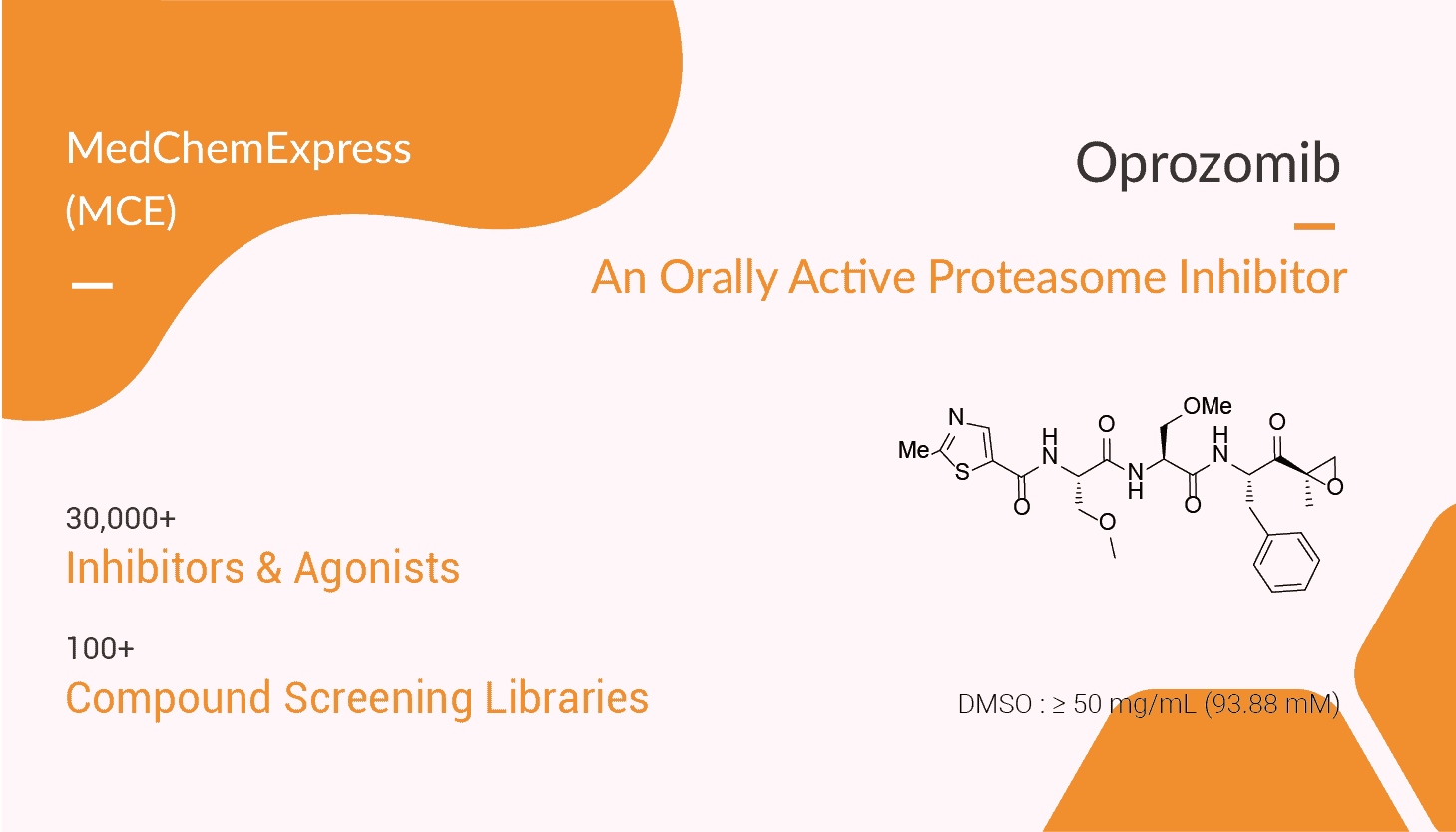Proteasome inhibition has been validated as a modality in the research of multiple myeloma and Non-Hodgkin’s lymphoma. The proteasome is a multicatalytic protease complex that is responsible for the ubiquitin-dependent turnover of cellular proteins. Proteasome substrates include misfolded or misassembled proteins as well as short-lived components of signaling cascades that regulate cell proliferation and survival pathways.
Inhibition of the proteasome leads to an accumulation of substrate proteins and results in cell death. The proteasome consists of a 20S proteolytic core and two 19S regulatory caps that assemble with the core at either end to form a 26S complex. Two distinct forms of the 26S proteasome, the constitutive proteasome and the immunoproteasome, have been identified. The majority of cell types express the constitutive form of the proteasome, while cells of the immune system express the immunoproteasome. Nonimmune cells can also express immunoproteasomes following exposure to inflammatory cytokines such as interferon γ (IFN-γ).

Oprozomib (PR-047) is an orally bioavailable and selective peptide epoxyketone proteasome inhibitor with IC50s of 36 and 82 nM for proteasome (β5) and immunoproteasome (LMP7), respectively.
Oprozomib (ONX 0912) induces apoptosis in MM cells. This compound inhibits 20S chymotrypsin-like (CT-L) with an IC50 of 55 ± 19 nM. It inhibits human leukemia Molt-4 cells CT-L with an IC50 of 66 nM. This compound significantly decreases the viability of human multiple myeloma (MM) cell lines. The anti-MM activity of Oprozomib has association with activation of caspase-8, caspase-9, caspase-3, and PARP.
Oprozomib selectively inhibits chymotrypsin-like (CT-L) activity of both the constitutive proteasome (β5) and immunoproteasome (LMP7) and demonstrates an absolute bioavailability of up to 39% in rodents and dogs. It promotes antitumor activity in multiple animal models by oral administration at doses below the maximum tolerated dose (MTD). This compound (30 mg/kg by oral gavage once daily for 5 consecutive days followed by 2 days of rest) treatment also decreases tumor burden in C57Bl/6 and NOD.SCID.IL2Rγ-/- mice.
In conclusion, Oprozomib has the potential for the research of cancer disease.
Reference: